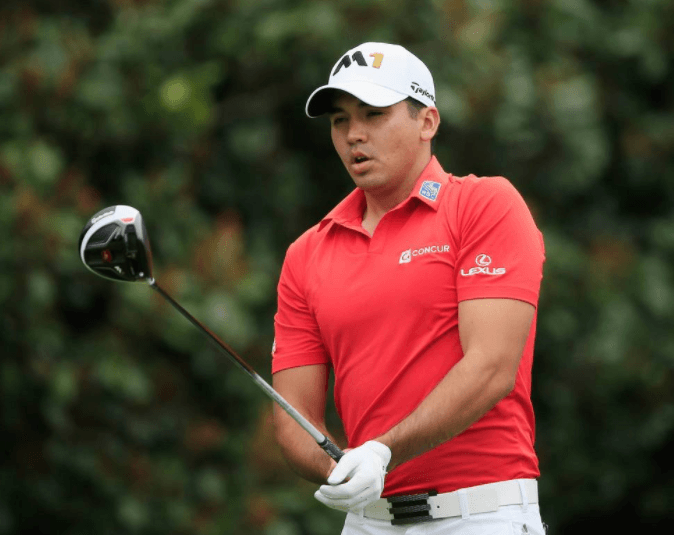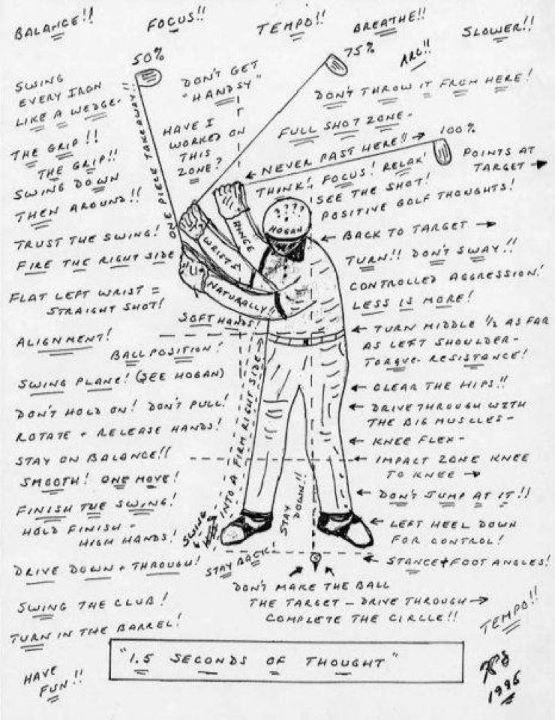
One of the reasons why golf can be such a difficult psychological game compared with other sports is because you are not reacting. Most athletes in the field of play don't have time to mull over their intentions. They simply let their bodies take over in the moment. With golf, we have plenty of time to stand over the ball and let negative thoughts take over our frame of thought.
This is exactly why you'll see that many top-level players have very consistent pre-shot routines. I always advocate that golfers should have some kind of routine before a shot because the familiarity can help calm your nerves and keep your mind (relatively) clear.
A recent study from the European Tour caught my eye on social media. I think it provides some interesting food for thought on why it makes sense to establish a repeatable pre-shot routine for your golf game.
Routine Can Help
The study took a look at 47 European Tour players across five tournaments, which was about 22,579 shots. Here were the three key findings:
1. Spending less time over the ball could earn a European Tour player an extra €189k per season
2. Quicker shots improve performance. A shorter time over the ball across all putts results in a 90 percent increase in the likelihood of strokes gained
3. Consistency of time spent over the ball leads to a greater chance of making the cut. When players are more consistent in rounds one and two they are 50 percent more likely to make the cut compared to less consistent players.
Here is a video summarizing their results:
While the sample size is pretty small, I find the results pretty interesting. I usually tell golfers that there aren't many things you can learn from professionals, but I do believe there is merit to having some kind of repeatable process.
OK, maybe not as long as Jason Day!

What It Can Look Like
A great pre-shot routine should have several elements in my opinion:
- Target Evaluation
- Physical Routine (ie. number of practice swings, alignment)
- A "trigger" to signify you are ready to swing
For me, it is quite simple. I stand behind the ball and evaluate where the optimal target is. I take two practice swings and then align my club pointing to the exact spot I am aimed. Once my feet are set, I go ahead and swing.
It is not complicated, doesn't take too long, and I do it before every single shot. Generally, I'm not thinking about anything related to my golf swing (though it's impossible not to sometimes).
The last thing you want to do is be this guy before you hit a golf ball...

Most Golfers Don't Do It
Most golfers I watch don't have any kind of routine. Their process before a shot is somewhat haphazard and is either way too short or long.
You don't need to spend two minutes behind the ball before each shot. I strongly believe if you decide on a routine that works for you, it will help in the long run.
There are plenty of moments during the round where your nerves can start ramping up - on the first tee, after a few bad swings, or even when you realize that you have been playing really well and you don't want the good times to end.
A routine can help with all of this. Having a familiar process before each shot almost serves as a force field that can shield you from all of the outside elements that golf throws at you - negative swing thoughts, fear of embarrassment, or even worrying about ruining a good round.
It is Not a Bulletproof Plan, But...
I don't want to mislead all of you into thinking that if you decide on a new pre-shot routine you will all of a sudden be shooting the best scores of your life.
The data from the European Tour is extremely interesting, but I wouldn't consider it completely definitive. However, golf improvement is all about giving yourself a chance of scoring better.
Given the choice between having no process at all and an established pre-shot routine, I would tell you that the latter situation will give you a much better chance of improving your mental game. As many of you know, golf is a game that is often played between the ears.
My advice to you is to start experimenting with a brief, repeatable routine before each shot. Think about your target, let the routine take over, and make sure you "pull the trigger" within a reasonable amount of time. The more time you spend fidgeting before you swing will likely allow negative thoughts to creep in.
Decisiveness is key!
We care about the protection of your data Read our Privacy Policy